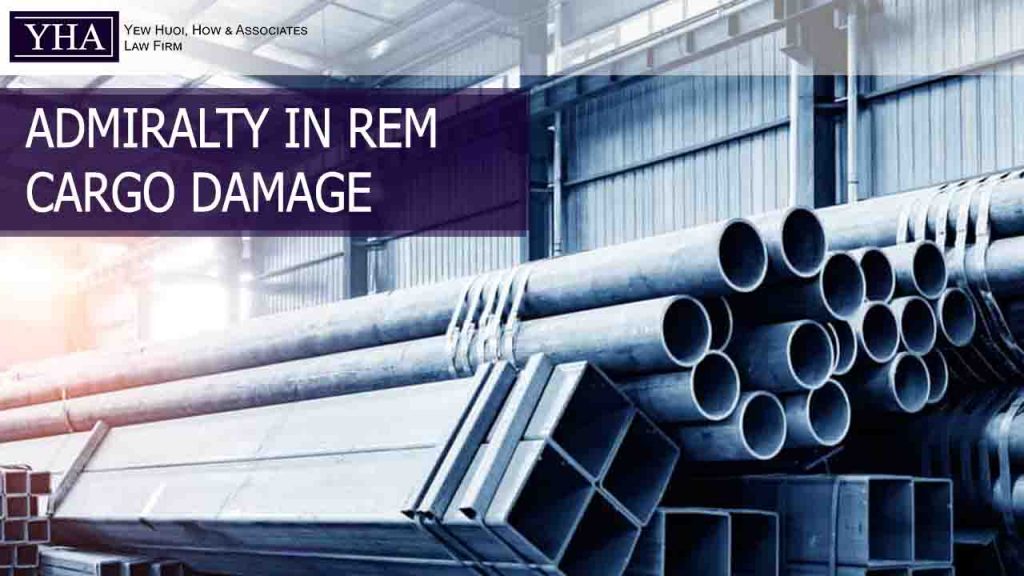“My company shipped steel bars from Port Klang to Kota Kinabalu. The steel bars were discovered damage upon discharge in Kota Kinabalu. Who can we claim against? Can we arrest the shipowner’s vessel?“
Yes. The Admiralty jurisdiction of the High Court includes “(g) any claim for loss of or damage to goods carried in a ship” and “(h) any claim arising out of any agreement relating to the carriage of goods in a ship or to the use or hire of a ship“. In another words, you may invoke the “Admiralty” or “In Rem” jurisdiction of the High Court for cargo damage.
However, it must be mindful that a claim under Section 20(2)(g) and (h) of the UK Seniors Courts Act 1981 (“SCA 1981“) must satisfy two (2) requirements in s. 21 of the SCA 1981 as follows:
a.)The claim arises in connection with a ship; and
b.)The person who is liable is either owner, charterer or in possession or in control of the ship.
In another words, if the person who would be personally liable to the plaintiff’s cargo damage is someone other than “the owner, charterer or in possession or in control of the ship“, Admiralty in Rem action cannot be maintained on that ship.
It is also important to note that a claim under sub-section (g) and (h) above may be brought against either the offending ship or the sister ship(s).
Once the aforesaid criteria are met, a writ in rem may be taken out against the ship. Before a writ in rem is issued, cargo owners might also want to take note of the following matters and perform the following steps.
- STEP 1 : Get hold and go through the contract of carriage. This can be in the form of a bill of lading or a charterparty (fixture notes).
- STEP 2 : Obtain a chemical or expert report identifying the cause of damage. The damage could be as a result of seawater damage, physical damage due to loading and unloading of cargo, inherent manufacturer’s defects etc.
- STEP 3 : Identify who would be personally liable to the damage. We do note the difficulty in ascertaining who would be liable to the damage at times. However, chemical or expert report would be able to shed some light in finding this answer. If the chemical report shows the presence of chloride, then it is likely the damage is caused by seawater contamination. An action can then be commenced against the shipowner for negligence, bailment or unseaworthiness of vessel. Cargo owner may rely on the doctrine of res ipsa loquitor to imply negligence on shipowner.
- STEP 4 : Consult your lawyers and track down the offending ship or sister ships. Lawyers might need some time to prepare the arrest papers, obtain an arrest order and making arrangement to serve the Writ on the vessel. Coordination too has to be made with the respective departments such as the marine department etc to ensure arrest is properly effected.
If you need more information on our legal updates, our Knowledge and Law News Division by clicking here , we would be pleased to assist.

